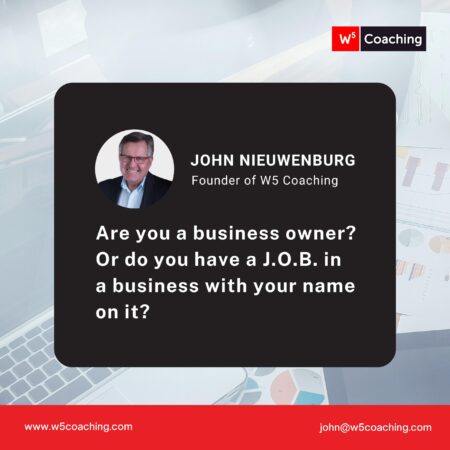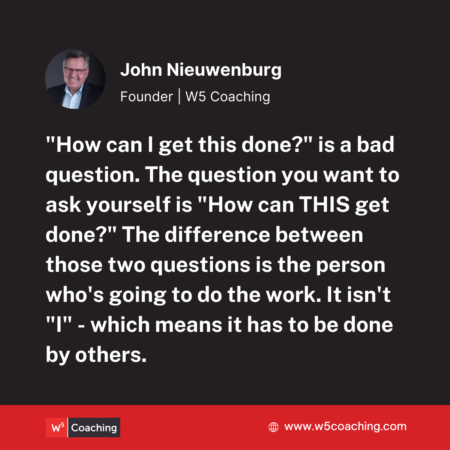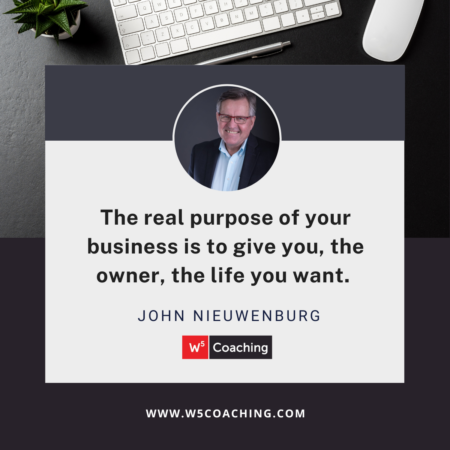Do You Have a Job or Own a Business?
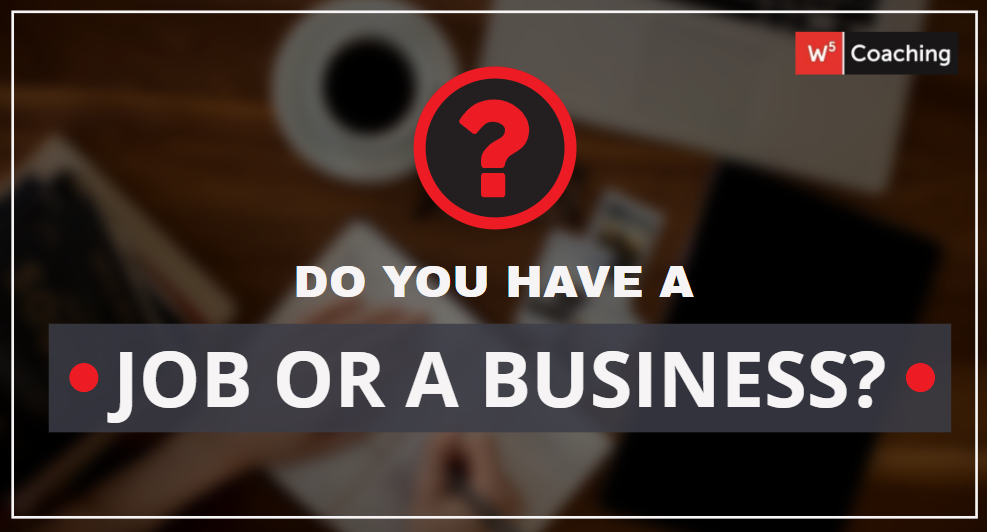
This can be a confusing question for small business owners.
A business, in theory, is something that can run without you.
A job (whether you own it or not) requires you to show up and work for the income.
According to that definition, most of my clients have a job working for a business with their name on the door.
But I think there’s more to the answer than just that.
Over the years, I’ve noticed three distinct rungs on what I call the “business ladder.”
Each rung requires not just different actions, but a different mindset about your role and how you think about money.
1. Self-Employed (Technician)
This is where most of us start.
There’s no separation between you and the business. You ARE the business.
You do the technical work, and your time equals your income.
You think about money in terms of, “If I put in the hours, I get paid.”
This “self-employed” model even extends to owners who bring other people into the business.
Think of the electrician who employs another electrician. They each have a van. They each bill by the hour.
One may call themselves the owner, but they’re both still trading time for money.
2. Operator-Owner
At this stage, you begin to let go of the idea that your value comes only from doing the work yourself.
You start delegating, building a team, creating systems.
Your mindset shifts from “How can I get this done?” to “How can this get done, and who can do it?”
You spend more time leading and less time on the tools.
One of my clients made this move recently.
He was working 40 hours a week on tools, but after hiring someone, he realized he could step back.
Now he spends 25 hours on tools and 15 hours leading—training, onboarding, building systems.
That doesn’t just change his schedule, it also multiplies his impact.
When ten people are billing at $100 an hour because you’ve built the systems and team to make it possible, that’s real leverage.
3. Investor-Owner
At this level, you think about money the way an investor does.
You see your business as an asset you own that generates profit whether or not you’re involved in the day-to-day.
Your role is strategic, not operational. Your team looks after the business while you’re on the golf course.
The mindset here is “I make money work for me.”
A McDonald’s franchise is a classic example.
The owner doesn’t have to flip burgers or run the till. They bought a system designed to generate profit, and their return comes from ownership, not personal labour.
The climb from one rung to the next always starts in your head.
You can’t build an operator-level business with a technician’s mindset. And you can’t become an investor-owner while thinking like an operator.
To illustrate these shifts, I often use a boat analogy.
Imagine you’re the captain of a 50-foot boat with a crew of ten.
You may be the most skilled mechanic on board, but you’ll still spend a lot of time in the engine room alongside the crew.
Now picture a 150-foot boat with a crew of fifty.
That captain can’t be in the engine room all day. They’re focused on coordinating and optimizing what the rest of the crew is doing.
Scale up again to an aircraft carrier with 2,000 people.
That captain is never in the engine room, except maybe to present a long-service certificate.
Their entire job is leading leaders, not maintaining engines.
Each captain is still “running the ship,” but what leadership looks like changes dramatically with each level of responsibility.
Business ownership works the same way. As you move up the ladder, your value shifts from what you do with your own hands to how you maximize the performance of others.
But I think the question of “do you have a job or own a business” misses the point.
The real measure of success isn’t whether you can disappear to a beach for six months. It’s whether your business gives you the life you want.
Here’s what I’ve learned after coaching over 400 business owners: almost no one comes in saying, “I want to be an investor-owner.”
They come in saying:
- “I’m working too many hours.”
- “I can’t find or keep the right people.”
- “I’m stressed about cash flow.”
In other words, they’re stuck in the weeds, frustrated by time, team, and money.
The first step in our work together is always to get them out of survival mode.
Once they’re breathing again, they can make real choices about what’s next.
For some, this might mean moving all the way to investor-owner.
But for many, the operator-owner rung is exactly where they want to be. It gives them control, balance, and satisfaction without the pressure of building something bigger than they actually want.
My own business is an example of that.
In 2018, I had a realization.
There was only one thing in my business I should be doing: talking to prospects and clients.
That’s the one thing nobody else could do as well as me.
Everything else needed to be handled by others.
Today, I’ve delegated the administration and marketing. But I’ve kept sales and fulfillment for myself.
Why? Because that’s what I enjoy most, and it’s where I bring the most value.
I could have built a larger firm, hired coaches under me, and shifted into the investor-owner role.
But I made a conscious decision not to.
I like working three days a week, spending time with clients, and having the freedom my current model provides. At this stage of my life, that’s success.
My business serves my life and lifestyle exactly the way I want it to.
Your Ladder, Your Choice
There’s no “right” rung to end up on.
The purpose of a business is not to fit some external ideal. It’s to give you, the owner, the life you want.
Maybe that’s building an asset that runs without you.
Maybe it’s a streamlined business that lets you work three days a week doing the work you love.
Either way, the starting point is always mindset.
If you’re stuck in technician thinking, your business will never be more than just a job.
But if you can see your role (and the value you create) in a bigger way, you can climb up a rung or two to create a business that supports the life you really want.
If you’d like some help getting there, book 15 minutes to chat with me about business coaching.
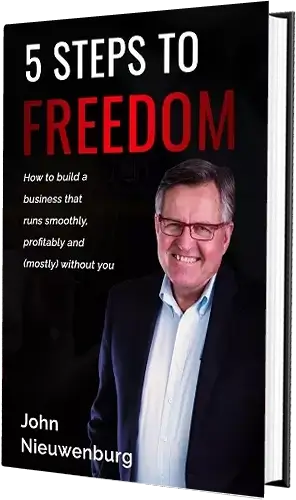
Build a Self-Managing Company
How to build a business that runs smoothly, profitably, and (mostly) without you.
Feeling stressed out and overwhelmed with a business that is taking all your time - and not giving you enough in return?
Are you finding it challenging to hire the right team (and get them to do the right things)?
I wrote this little guide for you!
Enter your details below to receive your free copy!

